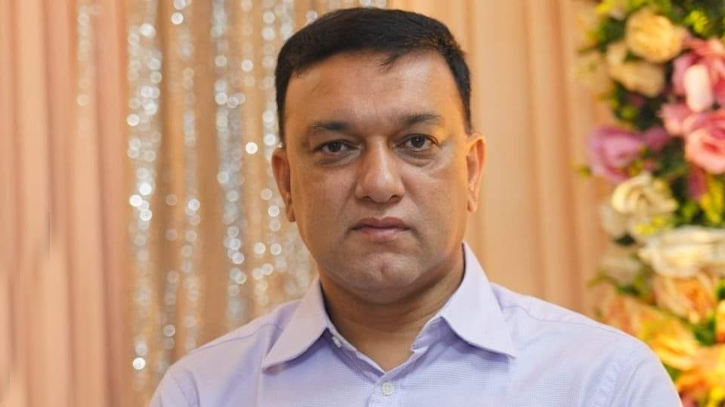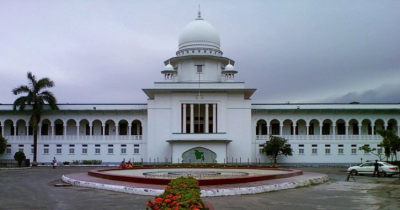
Mayor Ekramul Haque Titu. Photo: Collected
Mymensingh City Corporation holds a distinguished status as one of the oldest municipal bodies in the country. Mayor Ekramul Haque Titu has played a pivotal role in spearheading the city's development initiatives, leading to significant progress during his tenure. Alongside his mayoral duties, Titu also holds the esteemed position as the President of Mymensingh Metropolitan Awami League, further cementing his influence and leadership within the community.
Through his unwavering dedication as a politician and public representative, Titu has earned immense trust and admiration from the residents of Mymensingh. As the city prepares for the upcoming municipal elections, scheduled for March 9, with the withdrawal of nominations set for February 22 and the allotment of symbols on February 23, a total of 336,490 voters will have the opportunity to exercise their right to vote using Electronic Voting Machines (EVMs).
In an exclusive interview with M.A. Kalam, the Mymensingh Correspondent of The Daily Messenger, Ekramul Haque Titu shared his vision for the city's future.
Question: Amidst global crises, how has Mymensingh sustained its development projects? What measures ensure timely completion, and what impacts are anticipated?
Answer: Despite adversities, we have diligently pursued development projects. Currently, 20-25 percent of projects are completed, with the rest in progress. I'm optimistic about the transformative impact upon completion. If given the chance, I'll continue serving Mymensingh, as it's my soul connection with the people. Under the guidance of the esteemed Prime Minister, we've constructed 358 kilometers of roads, laid down 249 kilometers of drainage systems, and implemented modern LED street lighting across 171 kilometers of roads, enhancing the city's illumination.
Question: What steps have been taken to reduce water congestion in Mymensingh? How are healthcare services being improved for marginalized?
Answer: In our ongoing efforts to alleviate water congestion, we have reclaimed a 16-kilometer canal, facilitating smoother water flow. Additionally, we've established a city maternity hospital along with three primary healthcare centers to ensure healthcare accessibility for marginalized and underprivileged groups. These facilities provide free services to approximately 2,500 impoverished individuals, with over 400 mothers and children benefiting from low-cost healthcare services daily.
Question: How do you address the issue of traffic congestion in Mymensingh? Can you elaborate on the efforts made to streamline vehicle licensing and its impact on reducing the number of vehicles?
Answer: The influx of individuals from various districts and upazilas into the city since its inception has led to a notable increase in both mechanical and non-mechanical vehicles within the urban landscape. However, efforts have been undertaken in recent years to streamline vehicle licensing, reducing the number compared to the previous defunct municipality.
Question: What are your plans for creating employment in the transportation sector? Can you elaborate on the proactive measures taken to enhance waste management, drainage systems, and healthcare services?
Answer: We've created alternative employment opportunities in the transportation sector to reduce dependence on traditional vehicular occupations. To address traffic congestion, residents' support towards these initiatives is crucial. Additionally, we've undertaken measures to enhance waste management, drainage systems, and healthcare services. There's a pending proposal for a children's park awaiting approval.
Question: What key initiatives have you outlined for further development in Mymensingh, including the development of bus and truck terminals, improvement of the drinking water system, establishment of well-lit urban areas, poverty alleviation efforts, women's empowerment programs, and support for religious institutions?
Answer: In addition to these initiatives, we've planned for the development of bus and truck terminals, improvement of the drinking water system, establishment of well-lit urban areas, poverty alleviation efforts, women's empowerment programs, and support for religious institutions. We've made substantial progress in implementing these measures, with many projects currently underway. I'm optimistic that completing these initiatives will bring about transformative change, fostering a vibrant and prosperous urban environment.
Messenger/Disha








